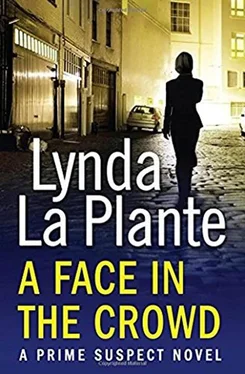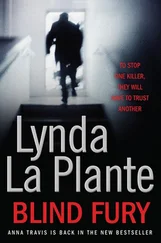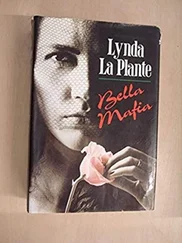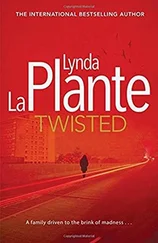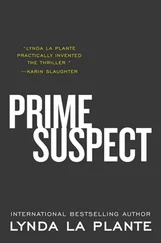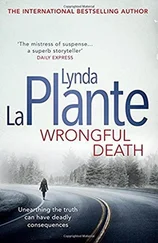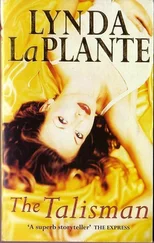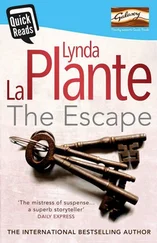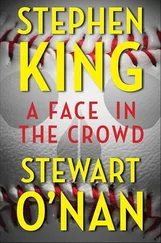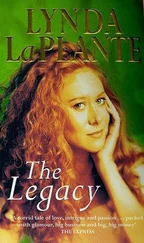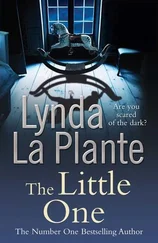“Hello, Guv,” she greeted Kernan, who was about to enter his office, and kept on going.
“Yes, it went very well since you ask.”
Tennison halted. “Sorry?”
“My interview.”
“Oh good… right…”
“Any news on Harvey?”
“He’s regained consciousness. I’m going down there to see him right now.”
Kernan nodded, gave her a look. “Well, gently does it, Jane.”
“Yes, I…”
“Get him everything he wants-lawyers, nurses, doctors, geisha girls-anything. Just so long as his lawyer can’t say you got a statement from him unfairly.”
Tennison tightened her belt, knuckles showing white. “Of course.” What did he think her intention was-throttle the truth out of a dying man?
Lillie emerged from the Incident Room, looking for her. “Excuse me, Guv. Apparently Harvey’s wife died in October eighty-five. Not August.”
“So his sister’s been telling fibs.”
“So it would seem.”
“Well, let’s see what Harvey’s got to say about that.”
Lillie went off, and Tennison was about to leave, when Kernan said, apropos of nothing, “By-election today.”
Then she twigged it. Jonathan Phelps, Labour’s firebrand, was up for election. There was a chance, a slim chance, that he might get in, and if he did there could be one or two repercussions. Phelps was riding on the ticket of community policing in black areas, on newsworthy items such as the case of Derrick Cameron. And now Tennison was investigating a murder in the Honeyford Road area involving a girl of black-white parentage. A highly-sensitive, highly-potent mixture. Like most policemen, Kernan was a staunch Tory, and the last thing he desired was to give the opposition the ammunition to fire a broadside.
With a ghost of a smile, Tennison said, “Well, why aren’t you wearing your blue rosette?”
It wasn’t a joke to Kernan; it was deadly serious.
“Senior policemen are politicians first and foremost, Jane. Remember that if you’re up for Super.”
It was bad enough that he believed it, Tennison thought, even worse to realize that he was right.
The teenager in the black leather jacket, baseball cap worn back to front, stood at the counter of Esme’s cafe, dithering. He pointed to a large bowl of mashed yams with cinnamon and nutmeg, topped with grated orange rind.
“How much is that?”
“One seventy-five,” Esme said.
“How much?” the boy said, goggling.
Esme switched her attention to the tall, good-looking man waiting patiently to be served. From her bright smile and cheerful, “Yes, dear?” Oswalde knew that she hadn’t recognized him.
“Let me have a medium fried chicken, rice, and peas.”
While she dished it up, the boy in the baseball cap continued moaning. He obviously had a sweet tooth, because he next pointed to a portion of plantain fritters, fried in butter and apple sauce. “How much is that?”
“Seventy-five pee.”
“You’re jokin’, man… yeah, all right, then.”
Esme served him and he slouched off, the flaps of his sneakers protruding like white tongues. She handed Oswalde his meal in a polystyrene tray and gave him change from a fiver. Oswalde ate it at the counter, watching Esme ice a large cake; Tony’s wedding cake, Oswalde thought, the wedding a week from Saturday.
“How is it?” Esme asked him.
“Very good. It’s been a long time.”
“Your mother doesn’t cook for you?”
“No.”
She flashed him her bright smile. “Then you come to Esme’s. I’ll cook for you.”
Oswalde moved along the counter, nearer to where she was working. “You don’t recognize me, Esme?” She straightened up, frowning, a slight shake of the head. “I’m a police officer. I’m investigating the murder of Joanne Fagunwa. That was her name, Esme. The girl who was buried in Harvey’s garden…”
Esme stared at him, surprise and shock mingled on her face. But she was in for an even bigger shock when Oswalde said softly, “Did you know that she was a member of Tony’s band? That she was with Tony on the day she died?”
“No,” Esme said in a whisper. No longer smiling, her eyes were scared now.
Oswalde pushed the chicken aside, leaning his elbows on the counter. “Are you sure Tony was there that night when you arrived home?”
“Yes. I’m sure.”
“He couldn’t have been with Joanne?”
“No.”
Oswalde was convinced she was telling the truth-as much of the truth as she knew, anyway. He said, “Why did you think he changed so much that summer, Esme? He’s never been the same since, has he? What happened to change him like that?”
She didn’t answer, though from her expression Oswalde knew he had scored a bull’s-eye.
Muddyman was waiting for her outside Harvey’s room. “Are we in?” Tennison asked tersely.
“Dr. Lim is still a bit jumpy, but yeah, I think so.”
At that moment Dr. Lim arrived. As they were about to enter, she held up a cautioning hand. “I don’t want him upset. Any extra pressure on his heart could be fatal.”
No more fatal than what happened to Joanne Fagunwa, Tennison reckoned, though she merely nodded, following the small, round-shouldered doctor inside.
Harvey’s breathing filled the room. He was looking up at the ceiling with his dull, bleary eyes. Tennison eased the chair up to the bed and leaned over, her mouth close to his ear. She held his hand.
“Don’t you think it’d be a good idea to talk to me, David?” she said very softly. “Get it off your chest?”
Harvey’s tongue came out to lick his dry lips. He stared straight up, his voice a horrible croak. “What…?”
“David, we know that Joanne-that was her name-we found that Joanne was killed in your home. A fragment of her tooth was found inside the house.”
Harvey swallowed. “Doesn’t mean I killed her,” he gasped.
Tennison went on steadily, “Your wife didn’t die in August, did she, David? Jeanie died in October 1985. What’s the point of lying, David? Carrying all that guilt?” From the corner of her eye she saw a blur of white coat as Dr. Lim, concerned for her patient, moved nearer, but Tennison kept on.
“You’re a very ill man. If you do tell me, nothing will happen to you-it’ll never come to that. We’ll be able to clear all this up and…” She paused. “Most important of all, you’ll feel so much better.”
Harvey closed his eyes and then opened them again, as if he might be thinking about it. Tennison waited, the hoarse, ragged breathing loud in her ears, the smell of it foul in her nostrils.
Oswalde stalked his prey, biding his time until Tony Allen had moved on from chatting to one of the checkout girls, and then he closed in behind him, reaching inside his jacket pocket for the color photograph of Joanne Fagunwa.
“Hello, Tony.”
Tony Allen jumped. “Sorry?”
“You don’t remember me? Detective Sergeant Oswalde. I was just doing a bit of shopping.” Tony Allen retreated a pace as Oswalde loomed over him. “While I’m here, perhaps you could have a look at this. Recognize her?”
Tony barely glanced at the photograph. “Why don’t you people leave me alone?” he said, a tremor in his voice.
“Because you’re telling us lies. You knew Joanne.”
“No…”
“You were both at the Sunsplash together. Better than that,” Oswalde said, quiet and lethal, “you played in the same band.”
Tony’s mouth dropped open. He wasn’t expecting that. Another bull’s-eye.
“Remember her African costume… her bracelets?”
“I don’t know what you’re talking about.”
“Oh, yes, you do.”
“I don’t.” Tony backed into a freezer cabinet. “ I don’t. ”
Читать дальше
